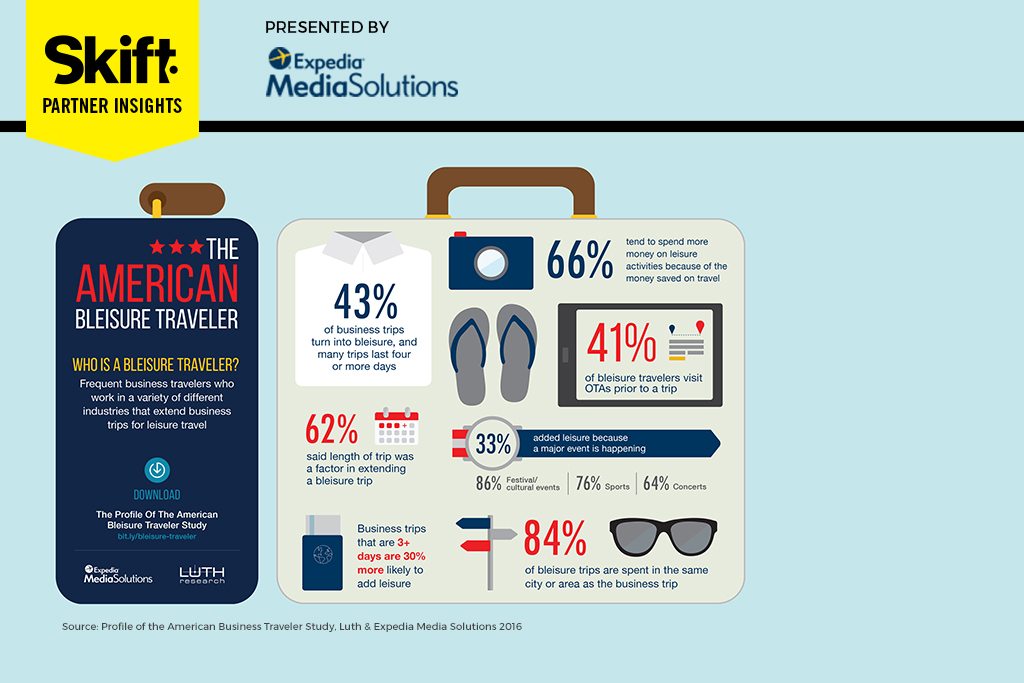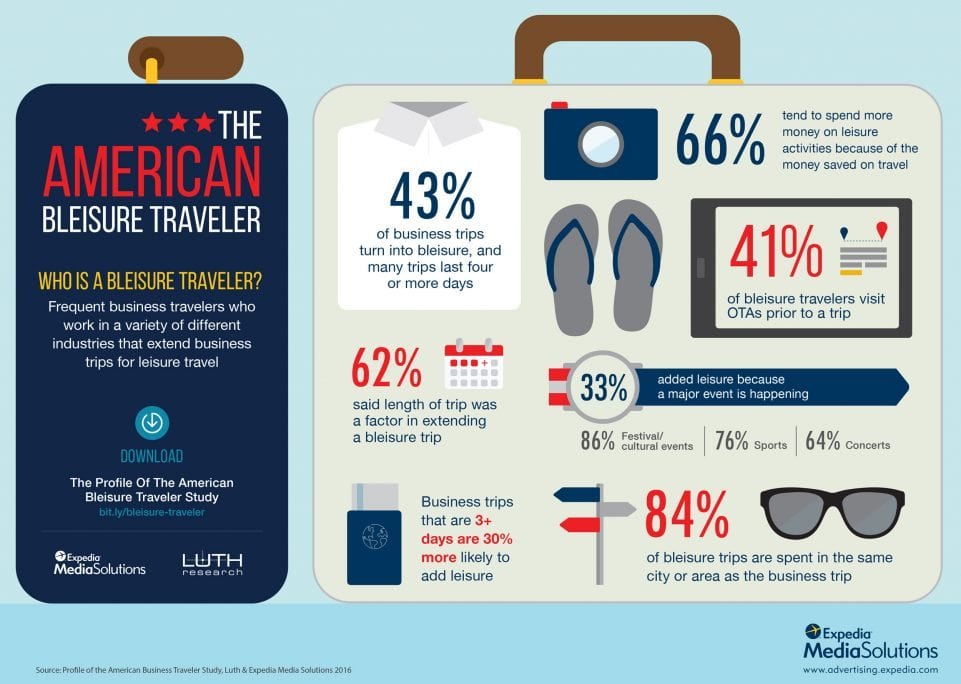Free Research: Profile of the American Bleisure Traveler
Sponsored By

Skift Take
These days, it’s not uncommon for business travelers to add additional leisure travel days to a business trip — so how can brands understand this segment and capitalize on this trend?
This sponsored content was created in collaboration with a Skift partner.
A bleisure trip is one that combines business and leisure travel, and it happens more frequently than some might think. A recent study from Expedia Media Solutions found that 43 percent of all business trips are extended to become bleisure trips.
The study, “Profile of the American Bleisure Traveler,” provides a view of the American bleisure traveler and offers actionable insights that will help brands understand and influence this desirable segment.
Here are three key takeaways from the study:
- The longer the trip, the more likely to become leisure. Business trips that last three or more days are 30 percent more likely to include an additional leisure trip.
- Bleisure travelers are driven by cost savings. Saving money on a leisure trip is a driving factor for many who choose to add one to a business trip; in fact, 59 percent say the additional costs required in order to extend are a driving factor for them and 47 percent say the affordability of their hotel is a driving factor.
- Business travelers are influenced by activities and willing to spend more. Sixty-six percent of bleisure travelers said they tend to spend more money on leisure activities because of the money they saved on travel. And, one-third of respondents said their decision to extend their business trip for leisure was influenced by whether or not there is an event going on in the area.
For more insights on bleisure travelers, you can download the full report here.

Up Next
Hotels
How Data Quality Issues Impact Global Hospitality Operations
There are wide discrepancies in data quality for hotel transactions across global regions, with the largest occurring in Asia-Pacific. Because hotels and agencies need to harness data quality to thrive, they must take a more nuanced regional approach to monitoring potential issues.
Sponsored Tourism
The White Lotus Effect Could Be a Disaster for Thailand's Koh Samui - And Travel Media Is Making it Worse
It is disheartening to see the same publications that have previously reported on the perils of overtourism now behaving like golden retrievers chasing a tennis ball, sprinting after the hype with little critical reflection.
Startups
Travel Startups Raise $580 Million Over Two Weeks
The ticket experiences sector has been ripe for modernization, and Klook is among those cashing in.
Airlines
Tariffs and Travel: What Trump’s Trade Moves Could Mean for Airlines
President Trump’s proposed tariffs on aluminum and steel imports could have ripple effects on the aviation industry — and eventually result in passengers footing the bill.
Hotels
Accor CEO: Opening Hotels in Mykonos Too Risky due to Climate Change
When a major hotel group like Accor decides not to build in Mykonos because of climate risks, it's a sign that climate change is reshaping business decisions.




